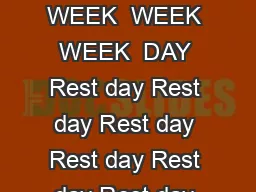PPT-What is banned books week and why do we celebrate it?
Author : natalia-silvester | Published Date : 2017-07-20
CI 551 Inquiry Project Janette Cremeans Stem Questions Why are books banned and challenged What books have been banned and challenged Why is intellectual freedom
Presentation Embed Code
Download Presentation
Download Presentation The PPT/PDF document "What is banned books week and why do we ..." is the property of its rightful owner. Permission is granted to download and print the materials on this website for personal, non-commercial use only, and to display it on your personal computer provided you do not modify the materials and that you retain all copyright notices contained in the materials. By downloading content from our website, you accept the terms of this agreement.
What is banned books week and why do we celebrate it?: Transcript
Download Rules Of Document
"What is banned books week and why do we celebrate it?"The content belongs to its owner. You may download and print it for personal use, without modification, and keep all copyright notices. By downloading, you agree to these terms.
Related Documents














